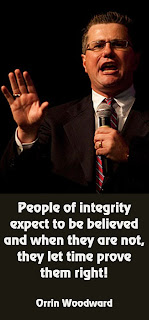On Monday January 10, 2022 the Minnesota Vikings of the National
Football League relieved their head coach Mike Zimmer and general manager Rick
Spielman of their duties. Shortly afterwards,
co-owner Mark Wilf held a press conference to discuss the decision with the
press. As I watched the press conference
(full disclosure: I am a long time and long-suffering Minnesota Vikings fan) I
was struck by the multiple leadership lessons being displayed by Mr. Wilf. I will unpack them for you here. My intent is not to participate in a debate
regarding the wisdom of the decision nor is it to have a ‘football’ conversation. My intent is to analyze the leadership
lessons that can be gleaned from Mr. Wilf’s 20-minute press conference.
Here are some points that I observed in watching (and re-watching)
the press conference.
1.
Opening statement was clear, concise, and short!
Mr. Wilf’s opening statement took a little over one
minute. In that time, he clearly laid
out the following:
-
Communicated to internal stakeholders “… important
that we all met with our players, our leadership council, our coaching staff,
our football operations, and our entire front office…” Anytime a decision of this magnitude is made,
people will have questions. The best way
to effectively address these questions is immediately and head on. Information is best heard first hand! Effective leaders need to master critical communication
AND the timing of critical communication.
According to Mr. Wilf’s statement, the Vikings ownership did just that.
-
Clearly laid out the priorities for the future. Mr. Wilf stated the goal: “Our goal is to
consistently contend and to win championships.”
As Stephen Covey has advocated, “Start with the end in mind”. Mr. Wilf made this very clear.
-
Have a plan.
Mr. Wilf shared that they had a plan (but did not offer many details…
this could be good or bad) and acknowledged the need to utilize all the resources
at their disposal.
-
Clearly stated what they wanted: “We’re looking
for strong leaders, communicators, collaborators…”
-
Clearly acknowledged their clients (in this case,
the Minnesota Vikings fans) “… we have tremendous appreciation for our fans and
we want to bring them the championships they expect and deserve.”
2.
Responses to questions were consistent and concise.
-
Mr. Wilf repeatedly edified the existing personnel
of the organization. This was made clear
in his statements that he believed that the Vikings should be competitive in the
2022 season. He went on to answer
questions inevitably circling back to his main message: The goal is to win
championships and they are looking for strong leaders, strong communicators,
and strong collaborators. He repeatedly
verbalized his confidence in the people in the organization in a clear and
concise manner.
-
Several times Mr. Wilf was asked detailed
questions that went beyond the hiring of a new General Manager and Head
Coach. Each time he brought it back to
the GM and HC. At one point he stated “…we
know what we don’t know… we’re going to make sure we hire the right people… first
things first is that we’ve got to get the new leadership in place…”. Mr. Wilf set the agenda and consistently
brought the conversation back to the immediate goal: hiring a new GM and HC. He controlled the conversation. He was not dismissive, always responding to
the question, but then always brought it back to his agenda.
-
More than once he was asked about the lack of
success in the past. Mr. Wilf expressed
disappointment but then immediately brought the conversation back in a positive
direction praising the current team roster and employee base. The internal stakeholders were listening and heard
loud and clear that the ownership respects and has confidence in them.
So, leadership lessons from Mark
Wilf’s press conference:
1)
Have an agenda and communicate it in a clear and
concise manner
2)
Edify and build up your existing team.
3)
Don’t be dismissive; however, bring the conversation
back to the current purpose.
4)
Don’t throw people under the bus!
5)
Keep being positive.
From a leadership perspective, Mark Wilf did an outstanding
job conducting this press conference. He
displayed excellent leadership skills that should be emulated!














